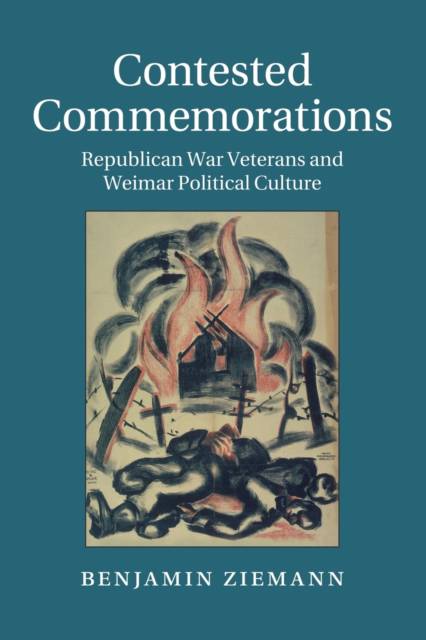
- Afhalen na 1 uur in een winkel met voorraad
- Gratis thuislevering in België vanaf € 30
- Ruim aanbod met 7 miljoen producten
- Afhalen na 1 uur in een winkel met voorraad
- Gratis thuislevering in België vanaf € 30
- Ruim aanbod met 7 miljoen producten
Zoeken
€ 60,95
+ 121 punten
Uitvoering
Omschrijving
This innovative study of remembrance in Weimar Germany analyses how experiences and memories of the Great War were transformed along political lines after 1918. Examining the symbolism, language and performative power of public commemoration, Benjamin Ziemann reveals how individual recollections fed into the public narrative of the experience of war. Challenging conventional wisdom that nationalist narratives dominated commemoration, this book demonstrates that Social Democrat war veterans participated in the commemoration of the war at all levels: supporting the 'no more war' movement, mourning the fallen at war memorials and demanding a politics of international solidarity. It describes how the moderate Socialist Left related the legitimacy of the Republic to their experiences in the Imperial army and acknowledged the military defeat of 1918 as a moment of liberation. This is the first comprehensive analysis of war remembrances in post-war Germany and a radical reassessment of the democratic potential of the Weimar Republic.
Specificaties
Betrokkenen
- Auteur(s):
- Uitgeverij:
Inhoud
- Aantal bladzijden:
- 328
- Taal:
- Engels
- Reeks:
- Reeksnummer:
- nr. 36
Eigenschappen
- Productcode (EAN):
- 9781107631830
- Verschijningsdatum:
- 1/09/2016
- Uitvoering:
- Paperback
- Formaat:
- Trade paperback (VS)
- Afmetingen:
- 152 mm x 229 mm
- Gewicht:
- 439 g

Alleen bij Standaard Boekhandel
+ 121 punten op je klantenkaart van Standaard Boekhandel
Beoordelingen
We publiceren alleen reviews die voldoen aan de voorwaarden voor reviews. Bekijk onze voorwaarden voor reviews.











